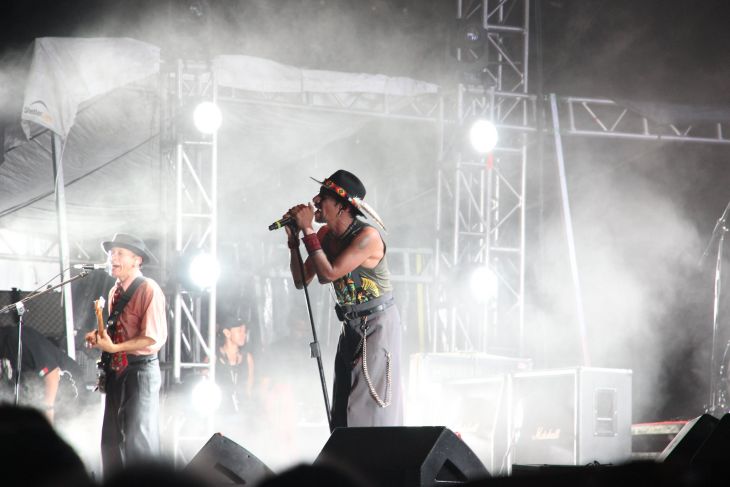Last week, I wrote about the impact of Baby Boomers on the world. In conclusion, I wrote that despite it all, we had great music.
But the music reflected on the whole a hedonistic side of that generation. While our generation called for “freedom” and “liberty”, freedom appeared to be freedom from responsibility and liberty to enjoy “sex, drugs and rock and roll”.
As I noted, the music indeed had a positive side in reflecting social injustice and racism in the United States and sensitizing audiences to the need for reform that eventually took hold in the civil rights acts and the voting rights act of the mid-sixties.
In his positive critique of the article, my son Sebastian noted that, while it reflected well on the era for North American Baby Boomers, it was not a reflection of the global impact of rock.
He recommended that I watch Netflix’s excellent documentary on rock in Latin America called “Break it All” (Rompan Todo).
As I watched it, I soon realized that the sixties and seventies in North America were radically different experiences than they were in Latin America.
"There was a campaign, on newspapers, radio and television, calling us degenerate, drug-addicts and all kinds of names," says Sergio Arau, a Mexican rock musician. "After that, there was repression: all the rock clubs had to close or change their music programming to salsa or folk music, and rock disappeared. It wasn't about translating and doing covers of American rock tunes," he says. "Musicians were talking about what they were living every day in the streets: the social conflicts, the government abuses, the police brutality."
Gustavo Santaolalla, now a two-time Academy Award and multiple Grammy and Latin Grammy winner — and a co-narrator and executive producer of Break It All --was one of those arrested. "I didn't do anything. I didn't belong to a political party, I didn't do any drugs, so what was the reason? They called it 'averiguación de antecedents,' to check your record," Santaolalla says.
He notes that the same kind of repression carried out in Argentina was also happening in Chile during the Pinochet dictatorship. "At the time, we were living very similar realities and we were much more similar than we perhaps could have thought. That's a great thing that you can see in the documentary," he says.
The show tells of “missing” or murdered musicians during the military regimes of the 60s, 70s and 80s, including Victor Jara in Chile, whose hands were cut off by military interrogators before finally being murdered.
Writing in Creatibe Oracle, Beatriz Acevedo notes that, in Latin America, rock became the way of resisting the oppressive regimes of the Cold War, supported and funded by the USA in their war against communism, in what they thought was their back yard. Music, art and poetry are powerful ways to challenge hegemonic regimes, and rock became the voice of the disenchanted youngsters in Chile and Argentina.
As she well notes, youth was persecuted, free thinking and long hair, demonized. Having a concert or a gig became a matter of life or death. Rock music and concerts were met with repression, incarceration, and, at times, death.
In Western Europe and North America rock musicians became the new elites of mass culture and their music soon became ingrained in the national psyches.
Rock songs were adopted and adapted to political campaigns, and AM and FM radio broadcast the music of the Beatles, the Rolling Stones, the Who and others 24/7.
Canadian Prime Minister Pierre Elliott Trudeau famously met John Lennon and Yoko Ono in 1969 and enjoyed a good conversation with them.
In Latin America, Argentinian dictator Jorge Videla and Chilean dictator Augusto Pinochet declared war on rock music and musicians, arresting them and forcing many into exile, torture, or certain death.
The point is that the same era in different parts of the world can in fact have a very different impact on protagonists depending on their country or context.
Indeed, while the jury is still out on the legacy of North American and European Baby Boomers, it is true that their Latin American counterparts did create a political and social space that helped to bring down military dictatorships and begin a process of democratization in many countries of the hemisphere. While that process has been difficult and, in a number of countries, absent, it remains far more positive than the military regimes that democracy replaced.
And therein lies the difference.
Keep reading: The Legacy of the Sixties
Edición: Laura Espejo
